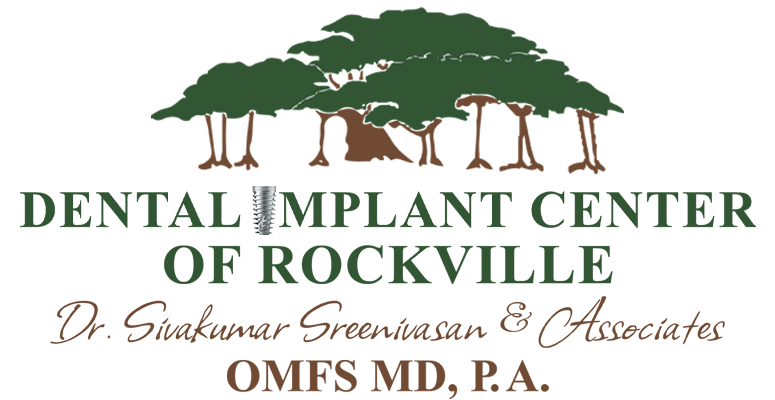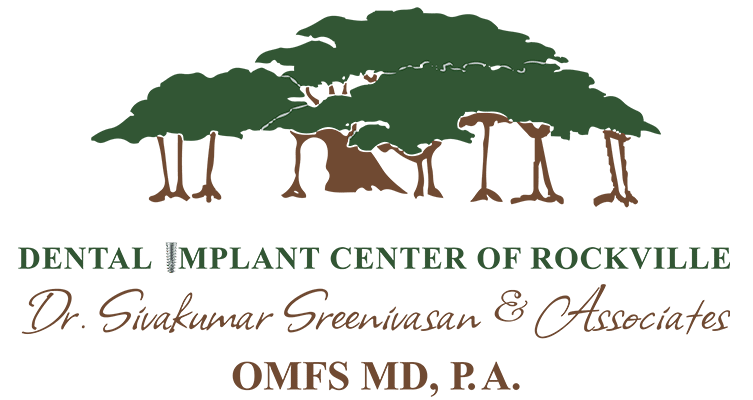Wisdom teeth are the common name of the third molars located at the back of the mouth. They are so-called because they naturally erupt in the late teens and twenties. Today, most patients' wisdom teeth do not erupt properly due to insufficient space.
Wisdom teeth that cannot normally erupt through the gums are considered impacted. Impacted teeth may have the following symptoms:
- The patient's dentist observes impacted teeth on an X-ray scan
- The tooth's crown lies at such an angle that it cannot emerge properly through the gum tissue
- The tooth partially erupts through the gums and recedes, leading to possible infection
- Pressing on neighboring teeth, causing malocclusion and weakened teeth
- Discomfort due to lack of space in the gum and jawbone
Treating Impacted Wisdom Teeth
The simplest treatment for most impacted wisdom teeth is extraction. Correcting wisdom tooth alignment may be impossible due to a lack of space to allow the teeth to take their proper places.
The Wisdom Teeth Extraction Procedure
The first step is to attend a consultation with your oral surgeon. Your surgeon will examine your teeth and take imaging scans to examine your oral anatomy and decide how to proceed.
You will need to decide whether you prefer to undergo your procedure with or without sedation. Many patients choose sedation via IV or general anesthesia, especially if they have dental anxiety or need multiple extractions.
During the wisdom teeth procedure, your oral surgeon will make a small opening in your gum and use special instruments to extract the necessary teeth. Depending on the degree of impaction, they may need to section the tooth into pieces to remove it safely.
The surgeon will secure your gum with dissolvable sutures to promote healing.
Recovering From Wisdom Teeth Extraction
Most patients find recovery from wisdom teeth surgery straightforward. To allow your gums and bone to heal, follow your oral surgeon's aftercare instructions to the letter. Also, follow the diet, oral hygiene, and pain management recommendations.
Age Considerations
If your family dentist informs you that your third molars have become impacted and are causing problems, you should consider having them extracted as soon as possible.
Many oral surgeons observe that younger patients recover more quickly from wisdom teeth surgery. Patients under age 30 have the most uncomplicated recovery. Beyond age 40, healing may take longer, and the patient may experience more complications.
Frequently Asked Questions About Wisdom Teeth Surgery
If I choose to leave my wisdom teeth alone, will there be complications?
You may be more prone to complications like cysts and tumors if you do not promptly remove your wisdom teeth. However, these are rare situations.
Do you remove all wisdom teeth or only the ones causing problems?
We only remove problematic wisdom teeth. Problem wisdom teeth are often apparent when the patient reaches the age of their late teens or early twenties.
Call the Dental Implant Center of Rockville
If you are experiencing symptoms or your family dentist has informed you that you need a wisdom tooth extraction, call 301-294-8700 to schedule your consultation with Dr. Sreeni. We look forward to meeting you and caring for your oral surgery needs.
An impacted tooth is a common dental issue. According to one study from the Hong Kong Medical Journal, nearly 30% of patients experience at least one impacted tooth.
Thus, impacted tooth surgery is a relatively common procedure your dentist or oral surgeon might recommend. As with any oral surgery procedure, if you’re going to undergo impacted tooth surgery, you need to know how to prepare. The following guide will help.
What is an Impacted Tooth?
A dentist may refer to a tooth as “impacted” when it can’t erupt fully. Some impacted teeth may only partially erupt, while others don’t erupt at all. Generally, teeth become impacted when there is lack of space for them to properly erupt.
What Does Impacted Tooth Surgery Involve?
Impacted tooth surgery involves removal of the tooth. Because an impacted tooth has not properly erupted, this isn’t as simple as merely pulling the tooth.
A patient will usually be asleep during impacted tooth surgery. The oral surgeon will provide the patient with medication via an IV drip, ensuring they remain unconscious throughout the procedure. Typically, impacted tooth surgery takes about an hour and a half.
An oral surgeon may also give a patient a local anesthetic. Doing so guards against a patient experiencing significant discomfort when they wake up.
Is Impacted Tooth Surgery Necessary?
You might wonder whether you need to have an impacted tooth removed. Is there any harm in simply ignoring it?
While this may be an understandable question, if a dentist or oral surgeon recommends impacted tooth surgery, following their advice and scheduling the procedure is important for the following reasons:
- Impacted teeth can cause pain
- Cleaning impacted teeth can be difficult, leaving them more vulnerable to decay than other teeth (which can increase a patient’s chances of developing gum disease as well)
- The presence of impacted teeth can result in additional alignment problems
How Can Patients Prepare for Impacted Tooth Surgery?
The oral surgeon will provide you with specific instructions for preparing for impacted tooth surgery. Be sure to follow these instructions carefully, and ask the surgeon any questions you may have if you need clarification on certain topics.
General steps patients may take to prepare for impacted tooth surgery include the following:
- Avoiding eating or drinking anything the day of the surgery (or even the night or day before the procedure, if your dentist or oral surgeon recommends it)
- Arranging to have someone drive you home from your appointment
- Discussing any medications and drugs you may take with the oral surgeon (including prescription drugs, over the counter medications, and recreational drugs)
- Not smoking for at least 12 hours before the procedure
- Setting aside comfortable clothing to wear during surgery
- Purchasing soft foods to eat after surgery
- Requesting time off from school or work to recover from the procedure
Again, these are merely general suggestions. Your oral surgeon may recommend additional steps.
Just remember, impacted tooth surgery is a common and routine procedure. By preparing for it correctly, you’ll maximize the odds of having a safe and comfortable experience both during and after treatment.
Learn More About Impacted Tooth Surgery in Rockville, MD
At Dental Implant Center of Rockville, impacted tooth removal is one of many services we offer. For more information about how we can help you, contact us online or call us at 301-294-8700 to request an appointment.

